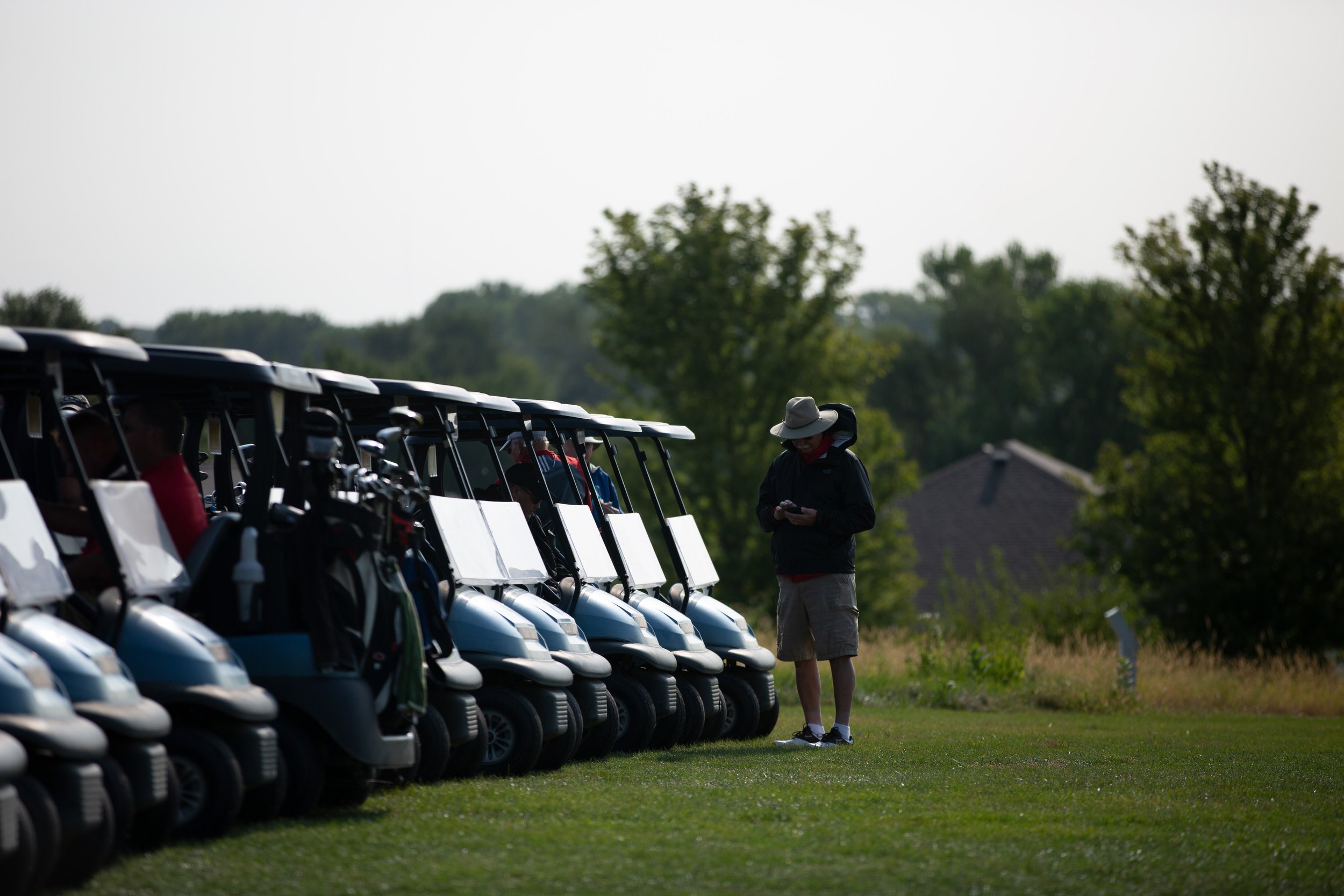A Q&A With PGA Professionals: Tournament Planning Basics
Planning a charity golf tournament can feel like a big undertaking, but with the right guidance and tools, it’s easier than you think. In this blog series, the PGA Professionals on staff at GolfStatus are sharing their insider knowledge and tips for success. With years of experience running tournaments of all sizes, Jason Meininger, PGA; Cash Dinkel, PGA; and Paul Murcek, PGA know exactly what it takes to organize a successful event.
In this installment of GolfStatus’ Q&A blog series, these Pros break down the basics of tournament planning—from creating a timeline and working with the golf course staff to must-have tools and advice for first-time organizers. Whether you’re new to tournament planning or looking to streamline your process, their tips will set you up for success.
The PGA Professionals on staff at GolfStatus, from left: Jason Meininger, PGA; Paul Murcek, PGA; Cash Dinkel, PGA.
Q: what’s a typical schedule for a charity golf tournament?
Jason Meininger: Start with your tee off time and build the schedule around that. Here’s an example for a 1:00 p.m. shotgun start:
11:00 a.m.: Check-in and registration, driving range open
11:00 a.m. - 1:00 p.m.: Lunch served
12:45 p.m.: Call to carts, welcome, and instructions
1:00 p.m.: Shotgun start
6:00 p.m.: Dinner and awards
Cash Dinkel: In my experience, morning starts are most common and a great option for charity tournaments. For example, open registration at 8:00 a.m. for a 10:00 am shotgun start, with a meal and awards following golf (if applicable). I usually recommend advertising to golfers that announcements will begin 15 minutes prior to the start of the tournament so people aren’t getting there late.
Q: What does the golf staff typically take care of on tournament day?
Paul Murcek: Usually they’ll take care of getting the golf carts set up and ready to go before kickoff and help you with any format or scoring announcements. They’ll also help with scoring and finalizing the results for awards.
Cash Dinkel: Golf staff will take care of printing materials like cart signs, scorecards, rules sheets, and live scoring instructions and getting them placed on golf carts. They often help with contest set up, scoring the event, and determining the winners. Depending on the facility, they may also make sure any necessary tables, chairs, tents, hole signs, pin flags, etc. are set up and ready to go.
Jason Meininger: It really varies from course to course. At a municipal, public course, they likely aren’t able to help as much as at a high end private golf club. Private facilities will do pretty much anything you need—set up carts and the driving range; produce scorecards, cart signs and rules sheets; make announcements; figure out winners; and hand out prizes after the round, if needed.
Q: in your experience, what tools are the most useful for planning a successful golf tournament?
Jason Meininger: Number one is an event website. It makes it so much easier to track payments, registrations, sponsorships etc. Number two is having a realistic budget and fundraising goal. This helps you set your pricing and get an idea of all of your tournament’s costs so you can see if it will be profitable.
Cash Dinkel: Online registration is a must-have, both for the time-savings involved for the organizer and to make it easy on the golfer or sponsor to register. I’d also say planning guides and resources from golf fundraising experts, plus live scoring to improve the overall player experience.
Paul Murcek: I’d say learning from others that have had tournaments is a great help in being successful. Lean on your Golfstatus client success rep and register for a couple of GolfStatus’ monthly webinars to hear from golf and fundraising experts.
Q: What are some things you wish organizers knew when planning a golf tournament for the first time?
Cash Dinkel:
It takes a team. Organize a committee to help shoulder the load, and don’t be afraid to delegate responsibilities.
Use your networks! Ask anyone and everyone you, your committee, staff, board, and volunteers know to play in the tournament, become a sponsor, volunteer to help, or just spread the word about the event.
Don’t set expectations too high for the first year of a tournament. You can absolutely make money in year one, but be realistic in your goals.
Jason Meininger:
Start planning early, at least six months before the tournament date.
Have a committee to help with promoting and running the event, especially on tournament day.
Recruit volunteers to help.
Golf tournaments can be a lot of work—remember you’ll get out of it what you put into it.
Marketing your tournament is essential. Use free channels like social media and email campaigns.
Paul Murcek:
Start early—procrastination is your worst enemy!
Create a sponsorship for every expense you have.
The more sponsorship options you have available, the better chances you have to appeal to potential sponsors.
Ask the Pros!
If you have a golf tournament or fundraising question for our PGA Professionals, email it to [email protected] with “PGA Pro Question” in the subject line! It just might make a future blog post or be answered on an upcoming GolfStatus webinar.
GolfStatus makes charity golf tournaments easier and more lucrative than ever. Whether you’re planning an event for the first time or looking to upgrade an existing tournament, GolfStatus’ tech and golf fundraising experts are here to help. Best of all, nonprofits can qualify to use GolfStatus’ tournament management software at no upfront cost through our Golf for Good program. Click the button to get started!


